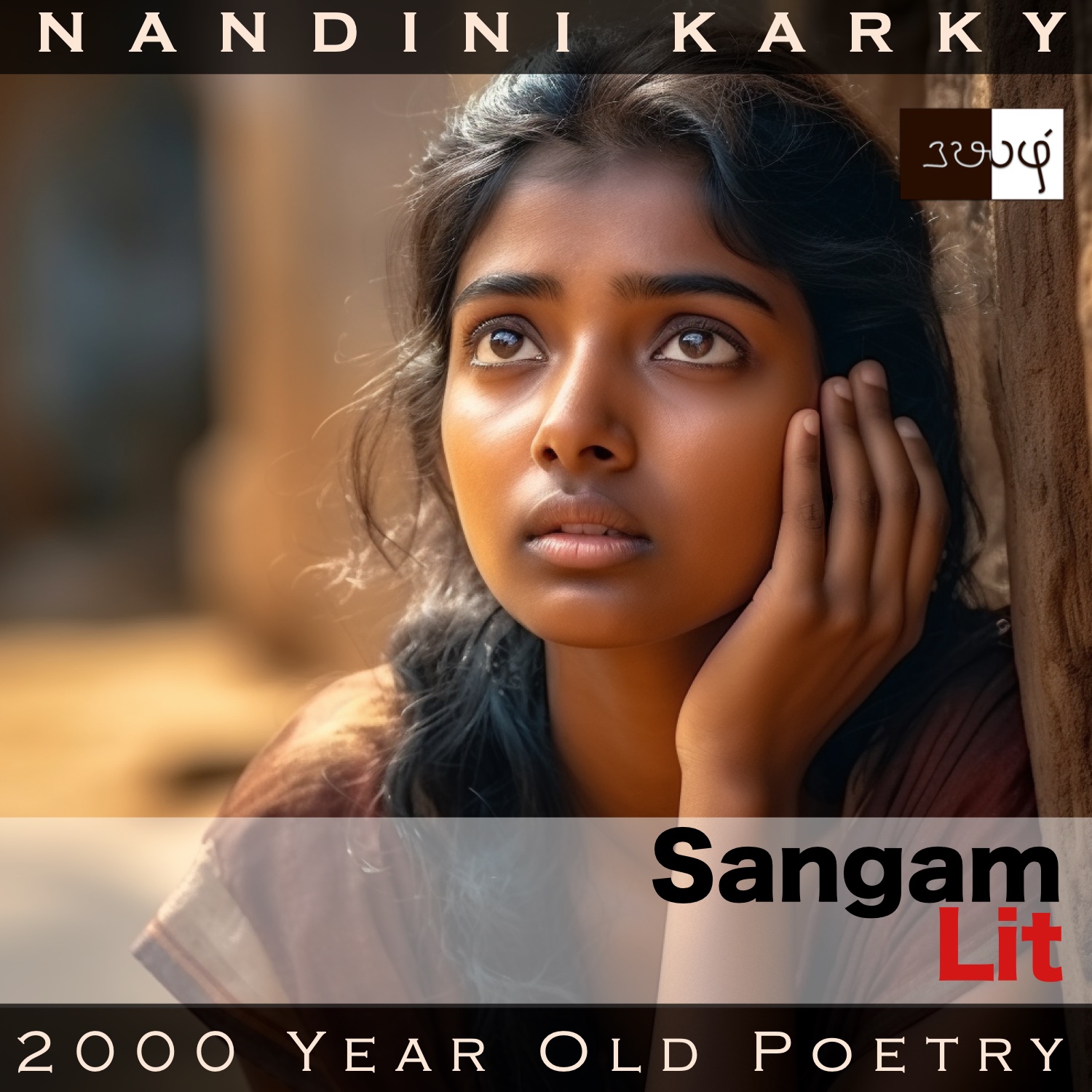Podcast: Play in new window | Download
Subscribe: Apple Podcasts | Spotify | Amazon Music | Android | iHeartRadio | TuneIn | RSS | More
In this episode, we gather further details about the situation involving a crying lady, as portrayed in Sangam Literary work, Puranaanooru 144, penned about the Velir King Vaayaavi Koperum Bekan by the poet Paranar. The verse is situated in the category of ‘Perunthinai’ or ‘Inappropriate love’ and relates the words of a distressed woman.

அருளாய் ஆகலோ கொடிதே; இருள் வர,
சீறியாழ் செவ்வழி பண்ணி, யாழ நின்
கார் எதிர் கானம் பாடினேமாக,
நீல் நறு நெய்தலின் பொலிந்த உண்கண்
கலுழ்ந்து, வார் அரிப் பனி பூண் அகம் நனைப்ப,
இனைதல் ஆனாளாக, ‘இளையோய்!
கிளையைமன், எம் கேள் வெய்யோற்கு?’ என,
யாம் தன் தொழுதனம் வினவ, காந்தள்
முகை புரை விரலின் கண்ணீர் துடையா,
‘யாம் அவன் கிளைஞரேம் அல்லேம்; கேள், இனி:
எம் போல் ஒருத்தி நலன் நயந்து, என்றும்,
வரூஉம்’ என்ப ‘வயங்கு புகழ்ப் பேகன்
ஒல்லென ஒலிக்கும் தேரொடு,
முல்லை வேலி, நல் ஊரானே.’
It seems as if Poet Paranar is continuing from where his colleague Kabilar left off in the previous verse as he addresses King Bekan. The poet’s words can be translated as follows:
“It would be cruel if you were not to render your grace! When darkness descended, we played the small lute in the ‘sevvali’ melody and sang about the beauty of your dense and dark forests nearby. Just then, she shed tears from her kohl-streaked eyes, akin to blue-hued lotuses, making those pouring drops moisten her jewel-clad bosom, filled with deep angst. When I asked with salutations, ‘O young maiden, are you related to my lord, whose friendship we desire?’, wiping her tears with her flame-lily-like fingers, she said, ‘I’m no relation to him; But do listen to the words of others who say that seeking the beauty of one like me, the famous Bekan journeys with his resounding chariot to a fine town, fenced by jasmine bushes’.”
Time to delve into the nuances. The poet starts with a declaration that it would be a terrible thing if the king failed to render his compassion. When we ask him, ‘To whom?’, instead of a direct reply, the poet goes on to talk about how along with a group of bards, as the small lute played in a specific tune, he had been singing glorious things about the king’s domain. Hearing this, there was this lady, who was shedding copious tears, showing that she was clearly in a deep distress. Sounds familiar? It’s the same scene we encountered, although in the words of another poet.
Seeing that lady’s pain, the poet seems to have enquired with kindness whether she was somehow related to the person being sung about – King Bekan, to be specific. To that question, she replies in the negative and then mentions how the town entire was talking about how this Bekan, desiring another woman, journeys to a jasmine-filled, fine town with his chariots resounding. The poet concludes by conveying these words of that lady to the king.
Now, the picture becomes a little clearer, in that we understand that King Bekan is not at his home, where the poet and bards have gone to seek his patronage. Also, through the words of the crying lady, we can infer that he is said to be seeking the company of another woman, possibly a courtesan in another town nearby. Still, who is this lady? Why does the poet request the king to render grace to her with such strong words? In all probability, this person could be his forsaken wife, as we have seen in many an ‘Aham’ song from ‘Marutham’ or ‘farmlands’ landscape in Natrinai and Kurunthogai. But then, why is she declaring she’s of no relation to him? Could it be anger and sorrow? For now, let’s just witness her emotions and hope to be enlightened by these poets!




Share your thoughts...